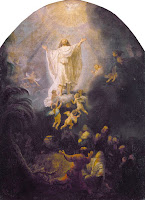Worship bloopers and "interesting" moments
This post was contributed by worship leader Mike Hale. What song is this? You’re the worship leader but suddenly you don’t recognize the piano intro, so the next few moments are, well, “interesting.” Or have you ever forgotten lyrics? Ever lose your place and need a few moments to find it again? Ever start singing the second verse instead of the first? Ever belt out the first two words of a chorus only to discover that everyone else is singing the bridge you have skipped? Ever start a song in the wrong key? If you’ve led worship for any time at all, you’ve run into some “interesting” situations. I’ve been there. Some are a little frightening or embarrassing, and some are humorous. I think my hair has turned a little more gray with each interesting episode, and now it’s nearly completely white. Once at our national pastors’ conference I was sitting on a wooden stool onstage between worship songs, when suddenly with a resounding “craaaack!” the stool broke apart, and I just barely c...




